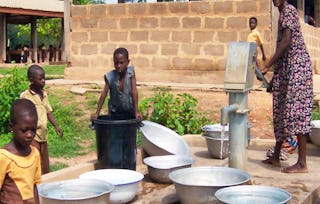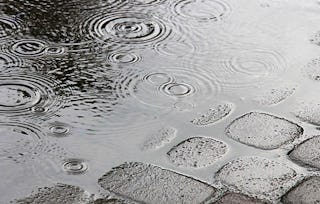It is well known that water treatment at the household level can lead to dramatic improvements in drinking water quality. But does Household Water Treatment and Safe Storage (HWTS) also have global relevance? What are the potential treatment solutions and how do they function? Is there a standard strategy for successful HWTS implementation, or can we identify key components which make programs more likely to succeed?

Introduction to Household Water Treatment and Safe Storage
Seize the savings! Get 40% off 3 months of Coursera Plus and full access to thousands of courses.

Introduction to Household Water Treatment and Safe Storage


Instructors: Rick Johnston
29,639 already enrolled
1,092 reviews
Details to know
5 assignments
See how employees at top companies are mastering in-demand skills

There are 5 modules in this course
Instructors


Offered by
Explore more from Environmental Science and Sustainability
 Status: Preview
Status: Preview Status: Preview
Status: PreviewPolitecnico di Milano
 Status: Preview
Status: PreviewUniversity of Manchester
 Status: Preview
Status: PreviewPolitecnico di Milano
Why people choose Coursera for their career

Felipe M.

Jennifer J.

Larry W.

Chaitanya A.
Learner reviews
- 5 stars
79.57%
- 4 stars
18.04%
- 3 stars
1.83%
- 2 stars
0.18%
- 1 star
0.36%
Showing 3 of 1092
Reviewed on Jun 1, 2020
Very informative and practical course as water treatment is very useful and it is very nice to have knowledge about HWTS for a student.Teachers are very knowledgeful and interactive in this course.
Reviewed on Jul 14, 2020
very useful, makes us susceptible to the ongoing and existing methods and technologies for water treatment for house with the perspective of public health.
Reviewed on Jun 30, 2020
The course was very well designed and the teachers were brilliant throughout. The Quizzes were very supportive and well made. Overall I really liked the course.

Open new doors with Coursera Plus
Unlimited access to 10,000+ world-class courses, hands-on projects, and job-ready certificate programs - all included in your subscription
Advance your career with an online degree
Earn a degree from world-class universities - 100% online
Join over 3,400 global companies that choose Coursera for Business
Upskill your employees to excel in the digital economy

